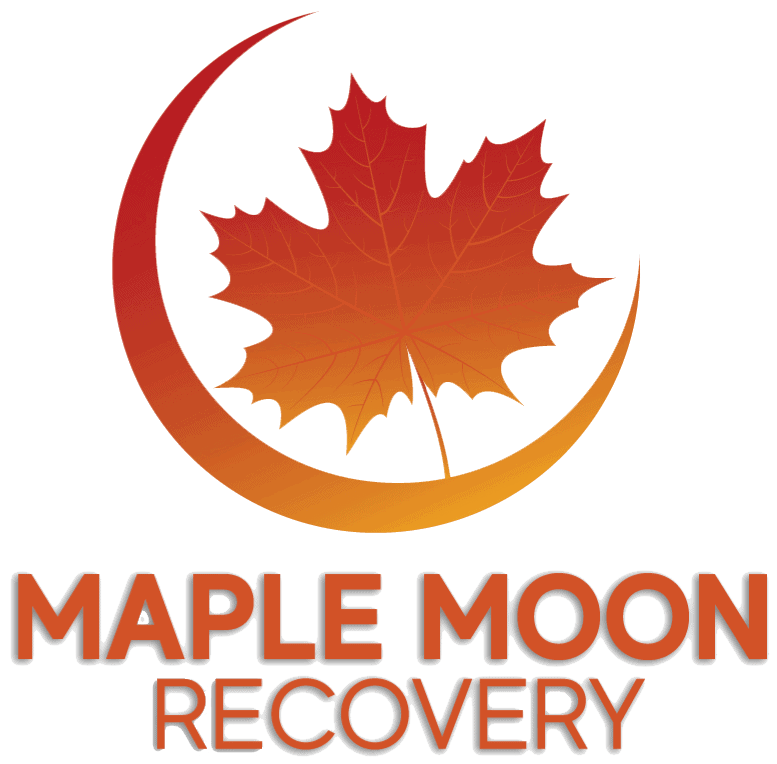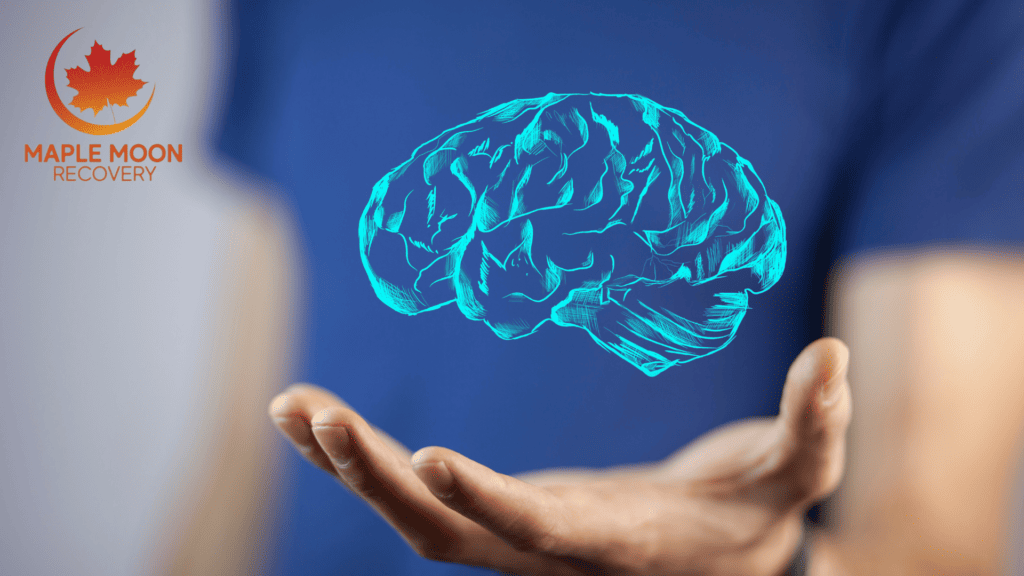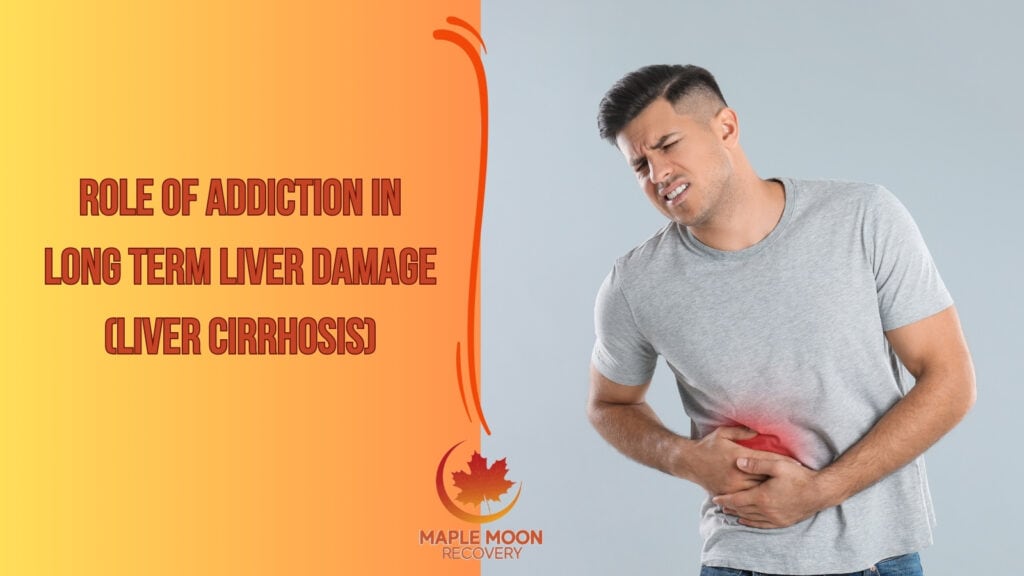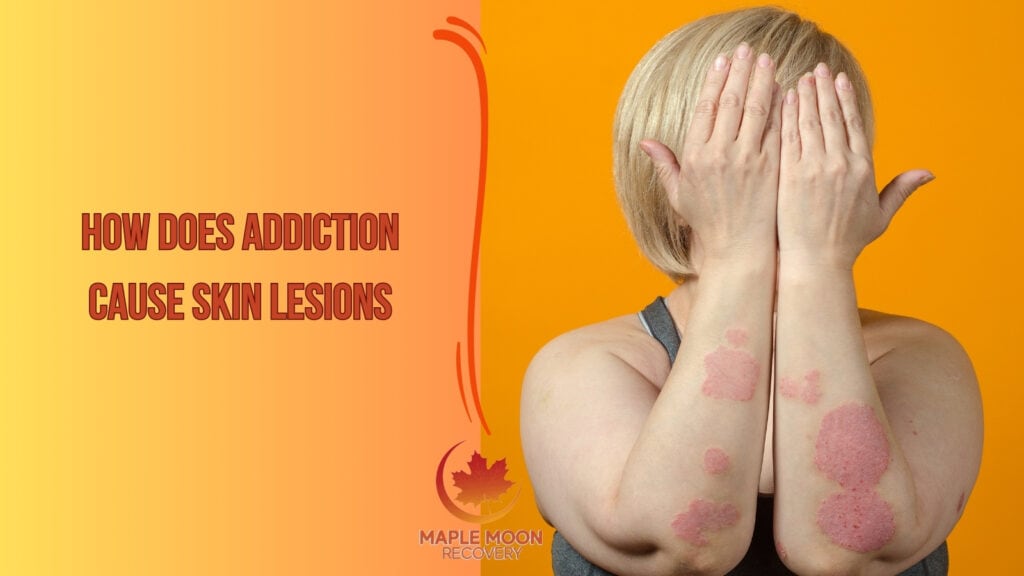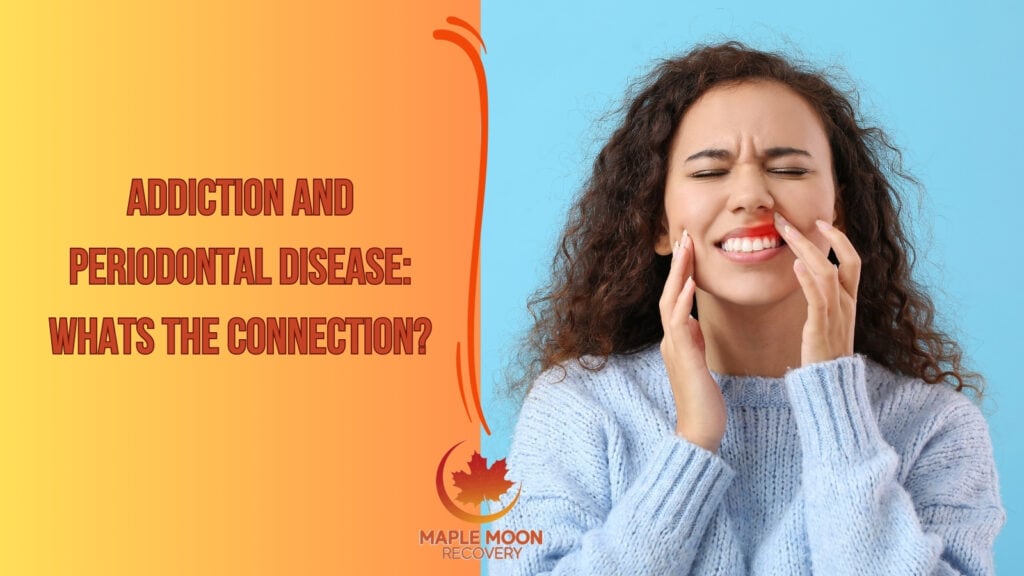Alcohol abuse is a widespread issue that affects millions of people worldwide. While the physical health implications are often discussed, the impact of alcohol on the brain is equally significant and far-reaching. Chronic alcohol abuse can lead to severe damage to the brain’s nerve cells, leading to cognitive impairments and other mental health issues. Understanding these effects is crucial in the journey towards recovery and long-term sobriety.
Introduction of Maple Moon Recovery and Its Mission
Maple Moon Recovery, located near Los Angeles, is a premier addiction treatment center dedicated to helping individuals find lasting freedom from addiction. The center creates a safe, comfortable, and healing environment staffed by highly skilled and compassionate therapists. With a focus on individualized treatment plans, Maple Moon Recovery aims to promote long-term recovery for each resident, addressing not only the physical but also the mental and emotional aspects of addiction.
Understanding the Brain and Nerve Cells
The brain is a complex organ, often considered the control center of the body. It is divided into several regions, each responsible for different functions. These regions include the frontal lobes (responsible for decision making and problem-solving), the temporal lobes (involved in memory and language), the parietal lobes (processing sensory information), and the occipital lobes (responsible for vision).

Role and Importance of Nerve Cells (Neurons) in the Brain
Nerve cells, also known as neurons, are the fundamental units of the brain and the nervous system. They are responsible for receiving sensory input from the external world, processing this information, and directing the body’s response. Neurons communicate with each other through electrical signals and chemical synapses, forming intricate networks that underpin our thoughts, emotions, and behaviors. The health and integrity of these neurons are vital for the brain’s proper functioning. Any damage to these cells, such as that caused by chronic alcohol abuse, can have significant implications for an individual’s cognitive abilities and overall mental health.
Alcohol and Its Impact on the Brain
Alcohol, despite being a legal substance, has profound effects on the brain, altering its structure and function. When consumed, alcohol is quickly absorbed into the bloodstream and reaches the brain, where it slows down the communication between neurons. This slowing down of the brain’s communication system is what leads to the common signs of intoxication, such as impaired motor coordination, slowed reaction time, distorted perception of reality, and poor judgment.
Over time, chronic alcohol consumption can lead to lasting changes in the brain. It can cause damage to the brain’s white matter, which is responsible for communication between different brain regions, and can shrink the brain’s gray matter, which contains the cell bodies of neurons and is involved in tasks related to muscle control, sensory perception, memory, emotions, and speech.
The Relationship Between Alcohol and Neurotransmitters
Neurotransmitters are chemicals in the brain that transmit signals from one neuron to another. They play a crucial role in regulating our mood, behavior, and bodily functions. Alcohol affects the brain by altering the levels and functioning of various neurotransmitters.
Two primary neurotransmitters affected by alcohol are gamma-aminobutyric acid (GABA) and glutamate. Alcohol increases the production of GABA, a neurotransmitter that slows down brain activity, leading to feelings of relaxation and sleepiness. At the same time, it inhibits the production of glutamate, a neurotransmitter that increases brain activity and energy levels. This dual action results in the slowing down of brain functions, leading to the sedative effects of alcohol.
Furthermore, alcohol also increases the release of dopamine, a neurotransmitter associated with the brain’s reward system. This release of dopamine is what causes the initial feelings of pleasure and euphoria when drinking, and it’s also what can contribute to the development of addiction, as people may continue drinking to chase these pleasurable feelings. Over time, however, chronic alcohol use can disrupt the normal functioning of these neurotransmitters, leading to tolerance, dependence, and the potential for serious health issues, including brain damage.
How Alcohol Damages Nerve Cells
Alcohol can cause significant damage to nerve cells, or neurons, in the brain. When alcohol is consumed, it alters the composition of the cell membranes, leading to changes in their structure and function. Over time, these alterations can cause the neurons to shrink or swell, impairing their ability to communicate effectively with other cells.
Moreover, alcohol can disrupt the balance of neurotransmitters, the chemical messengers that neurons use to communicate. This disruption can lead to overexcitation or inhibition of neurons, both of which can damage these cells.
The Concept of Neurotoxicity
Neurotoxicity refers to damage to the brain or peripheral nervous system caused by exposure to natural or man-made toxic substances. These toxins can alter the activity of the nervous system in ways that can disrupt or kill neurons.
Alcohol is a neurotoxin, meaning it can cause damage to neurons over time. This damage can lead to a variety of neurological symptoms, ranging from mild cognitive impairments to severe neurological disorders. The extent of the neurotoxic effects of alcohol depends on several factors, including the amount and frequency of alcohol consumption, the duration of use, the individual’s overall health, and genetic factors.
The Specific Areas of the Brain Most Affected by Alcohol
Alcohol can affect various areas of the brain, but some regions are more susceptible to its effects than others.
- The Frontal Lobes: These areas of the brain are responsible for higher cognitive functions, such as decision-making, planning, and impulse control. Alcohol can impair these functions, leading to poor judgment and risky behavior.
- The Cerebellum: This region is involved in motor coordination. Alcohol can affect the cerebellum, leading to issues with balance and coordination, often seen as stumbling or unsteady gait in intoxicated individuals.
- The Hippocampus: This part of the brain plays a crucial role in forming new memories. Alcohol can damage the hippocampus, leading to memory problems and difficulty learning new information.
- The Amygdala: This part of the brain is involved in emotion and behavior. Alcohol can alter its function, leading to mood swings and increased aggression.
- The Reward System: This includes areas of the brain involved in pleasure and reward, such as the nucleus accumbens and the ventral tegmental area. Alcohol stimulates these areas, leading to the release of dopamine and the feelings of pleasure associated with drinking. Over time, however, this can lead to addiction, as the brain starts to crave the dopamine release associated with alcohol consumption.
Long-Term Effects of Alcohol on Nerve Cells and Brain Function
Cognitive Impairments and Memory Problems
Chronic alcohol abuse can lead to significant cognitive impairments. These can manifest as difficulties with attention, problem-solving, decision-making, and other executive functions that are primarily controlled by the frontal lobes.
Memory problems are also a common consequence of long-term alcohol abuse. Alcohol can damage the hippocampus, a key area of the brain involved in the formation of new memories. This can lead to issues with short-term memory and difficulties forming new long-term memories. In severe cases, individuals may experience alcohol-induced amnesia, also known as “blackouts,” where they cannot remember events that occurred while they were intoxicated.
The Risk of Developing Mental Health Disorders
There is a strong link between chronic alcohol abuse and mental health disorders. Alcohol alters the balance of neurotransmitters in the brain, which can lead to mood and anxiety disorders. Depression and anxiety are particularly common among individuals with alcohol use disorder.
Moreover, alcohol can exacerbate the symptoms of existing mental health conditions. It’s also important to note that individuals with mental health disorders are often more susceptible to alcohol addiction, creating a vicious cycle that can be challenging to break.
The Potential for Brain Damage and Related Health Issues
Prolonged alcohol abuse can lead to permanent brain damage. This can manifest as a condition known as alcohol-related brain damage (ARBD), which includes several different conditions such as Wernicke-Korsakoff syndrome, alcoholic dementia, and alcoholic cerebellar degeneration. These conditions can lead to severe cognitive and motor impairments.
In addition to brain damage, long-term alcohol abuse can lead to a host of other health issues, including liver disease, heart disease, and an increased risk of various types of cancer. It’s crucial to understand that while the brain is a primary target of alcohol’s harmful effects, the damage is not limited to the nervous system.
Maple Moon Recovery’s Approach to Treating Alcohol Addiction
Maple Moon Recovery adopts a comprehensive and individualized approach to treating alcohol addiction. Recognizing that each individual’s journey to recovery is unique, the center tailors its treatment plans to meet the specific needs and circumstances of each resident.
The center’s approach is holistic, addressing not only the physical aspects of addiction but also the psychological, emotional, and social factors. This comprehensive approach ensures that all aspects of an individual’s well-being are addressed, facilitating a more robust and lasting recovery.
Specific Therapies and Treatments Used at Maple Moon Recovery to Aid Brain Recovery
Maple Moon Recovery employs a variety of therapies and treatments to aid in brain recovery from alcohol-related damage. These include cognitive-behavioral therapy (CBT), which helps individuals identify and change harmful thought patterns that contribute to their addiction, and neurofeedback, a type of biofeedback that trains the brain to function more efficiently.
The center also offers nutritional therapy, recognizing the role of a healthy diet in supporting brain health and recovery. Physical exercise, mindfulness practices, and stress management techniques are also integral parts of the treatment program, helping to enhance brain function and promote overall well-being.
The Possibility of Brain Recovery After Alcohol Abuse at Maple Moon Recovery
Despite the damage that alcohol can inflict on the brain, it’s important to note that the brain has a remarkable capacity to heal and regenerate. This process, known as neuroplasticity, allows the brain to reorganize itself, forming new neural connections to compensate for injury or changes in its environment. This means that with the right support and treatment, individuals recovering from alcohol addiction can experience significant improvements in brain function over time.
How Maple Moon Recovery Supports This Recovery Process
Maple Moon Recovery plays a crucial role in supporting the brain’s recovery process. The center’s comprehensive treatment program includes therapies designed to enhance neuroplasticity and promote brain health. These include cognitive-behavioral therapy, which helps individuals develop healthier thought patterns and coping strategies, and neurofeedback, which trains the brain to function more efficiently.
In addition to these therapies, Maple Moon Recovery also provides a supportive and stable environment that is conducive to recovery. This includes a comfortable residential setting, a structured daily routine, and a community of supportive peers and staff.
Factors That Influence Brain Recovery
Several factors can influence the brain’s recovery from alcohol-related damage. These include the duration and severity of alcohol abuse, the individual’s overall health, and the presence of any co-occurring mental health disorders.
At Maple Moon Recovery, these factors are taken into account when developing individualized treatment plans. The center’s holistic approach ensures that all aspects of an individual’s well-being are addressed, thereby enhancing the potential for brain recovery.
Prevention and Treatment of Alcohol-Related Brain Damage at Maple Moon Recovery
Importance of Early Intervention and Treatment
Early intervention and treatment are crucial in preventing and treating alcohol-related brain damage. The sooner an individual seeks help for alcohol addiction, the better their chances of minimizing the damage to their brain and other organs.
At Maple Moon Recovery, the team is committed to providing prompt and effective treatment for individuals struggling with alcohol addiction. The center offers a range of services, from medical detox to residential treatment, to ensure that individuals receive the care they need as soon as possible.
Overview of Maple Moon Recovery’s Treatment Options and Strategies
Maple Moon Recovery offers a variety of treatment options and strategies to address alcohol-related brain damage. These include medical detox to safely manage withdrawal symptoms, individual and group therapy to address the psychological aspects of addiction, and various complementary therapies to promote overall well-being.
The center’s treatment strategies are evidence-based, meaning they are backed by scientific research and have been proven effective in treating alcohol addiction and promoting brain recovery.
The Role of a Healthy Lifestyle in Prevention and Recovery
A healthy lifestyle plays a crucial role in preventing alcohol-related brain damage and supporting recovery. This includes a balanced diet, regular physical activity, adequate sleep, and stress management.
At Maple Moon Recovery, a healthy lifestyle is promoted as a key component of recovery. The center offers nutritional therapy, fitness programs, and mindfulness practices to help residents adopt healthier lifestyles. By fostering these healthy habits, Maple Moon Recovery helps individuals not only recover from alcohol addiction but also enhance their overall health and well-being.

Turning Over a New Leaf: The Path to Recovery with Maple Moon Recovery
Understanding the effects of alcohol on the brain is a crucial part of the journey towards recovery. Alcohol can cause significant damage to the brain’s nerve cells, leading to cognitive impairments, mental health disorders, and potential brain damage. However, with the right support and treatment, the brain has a remarkable capacity to heal and regenerate.
Maple Moon Recovery, with its comprehensive and individualized approach to treatment, plays a crucial role in supporting this recovery process. The center offers a range of evidence-based therapies designed to enhance neuroplasticity, promote brain health, and address the psychological aspects of addiction. Furthermore, Maple Moon Recovery fosters a healthy lifestyle, which is key to preventing alcohol-related brain damage and supporting overall well-being.
If you or a loved one is struggling with alcohol addiction, don’t wait to seek help. Early intervention and treatment are crucial in minimizing the damage to the brain and other organs. Contact Maple Moon Recovery today to learn more about their services and how they can help you on your journey towards recovery. Remember, it’s never too late to start the path towards healing and sobriety.
Sources
Zahr, N. M., & Pfefferbaum, A. (2011). Alcohol’s Effects on the Brain: Neuroimaging Results in Humans and Animal Models. Alcohol Research & Health, 34(3), 215–231. Retrieved from https://www.tandfonline.com/doi/abs/10.3109/10408363.2011.580567
Zorumski, C.F., Mennerick, S., & Izumi, Y. (2019). Acute and chronic effects of ethanol on learning-related synaptic plasticity. Alcohol. Link
